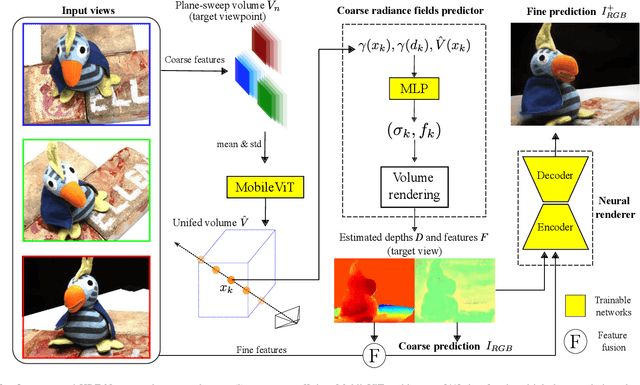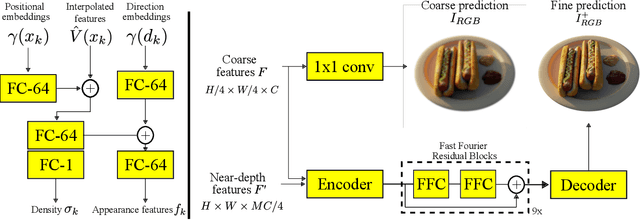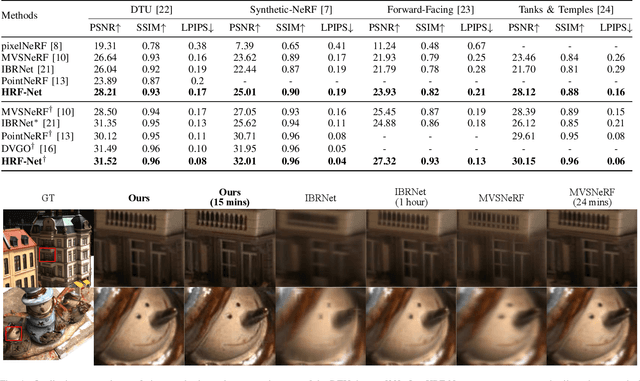HRF-Net: Holistic Radiance Fields from Sparse Inputs
Paper and Code
Aug 09, 2022



We present HRF-Net, a novel view synthesis method based on holistic radiance fields that renders novel views using a set of sparse inputs. Recent generalizing view synthesis methods also leverage the radiance fields but the rendering speed is not real-time. There are existing methods that can train and render novel views efficiently but they can not generalize to unseen scenes. Our approach addresses the problem of real-time rendering for generalizing view synthesis and consists of two main stages: a holistic radiance fields predictor and a convolutional-based neural renderer. This architecture infers not only consistent scene geometry based on the implicit neural fields but also renders new views efficiently using a single GPU. We first train HRF-Net on multiple 3D scenes of the DTU dataset and the network can produce plausible novel views on unseen real and synthetics data using only photometric losses. Moreover, our method can leverage a denser set of reference images of a single scene to produce accurate novel views without relying on additional explicit representations and still maintains the high-speed rendering of the pre-trained model. Experimental results show that HRF-Net outperforms state-of-the-art generalizable neural rendering methods on various synthetic and real datasets.
 Add to Chrome
Add to Chrome Add to Firefox
Add to Firefox Add to Edge
Add to Edge